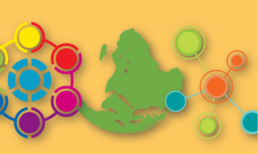Create, convene and sustain…
Dear Network members and partners,
2021 was the second year of the Covid-19 pandemic, a global health crisis that is not yet finished but already provides some lessons in health governance and health cooperation that need to be observed.
The major obstacle for achieving the aspiration of “health for all”, for all people, all over the world, is not any disease, not even Covid-19. Inequity remains the major health problem, as we could observe in the unequal access to Covid-19 vaccines, but also in how the pandemic disproportionally affected the lives and livelihood of the poor and marginalized in all countries and all societies. Prevailing social and economic models are not fit for properly dealing with transboundary health emergencies and fail both at the level of national responses and global cooperation and solidarity.
Early discussions about a “pandemic treaty” that theoretically should better prepare the world for future pandemics have mainly focused on technical responses. While these are highly relevant, they need to be complemented by caring for the people and addressing systemic root causes of the pandemic. Human and civic rights have been violated in public health responses to Covid-19. This is not acceptable. We also need to address climate change and ecological degradation and their effects on “One Health”. And all countries need to overcome, in solidarity, the structural crisis of health systems and the current confusion, competition and dissent in global health governance.
In this complex situation, with uncertain perpectives, it is more than ever necessary for civil society organizations to have spaces to come together for sharing, learning, strategizing and cooperation. As outlined in this report, moderating and sustaining civil society projects such as the Kampala Initiative, the Geneva Global Health Hub, or the Health Workers for All Coalition, as done by the MMI Network, is not an easy task, and changing times and growing ambitions also need new strategies and formats and a reconsideration of our own role. And yes, we are right now in the lead of exploring new initiatives. Initiate, create, convene, and sustain…
When we promote international health cooperation, let us admit that the challenges in our political and social context directly influence our own role and work. In a globalized world, there is no more easy “they” and “us”, but mainly an “all of us”, in different shapes. In 2021, MMI hosted different policy dialogues to reflect on how to deal with digitalization and health and with climate injustice and health, how to defend the civic space at the WHO and other UN bodies and agencies, and what are implications for international cooperation if global health is reduced, in the shadow of the pandemic, to global health security. These are policy issues that concern all of us, in all countries and societies.
All in all, MMI wants to continue being a key civil society actor in promoting the right to health for all. The pandemic has shown that “health for us, first” is not only injust, but does not work. National egoism and lack of cooperation delayed the real solutions for Covid-19 and finally affected the right to health in almost all countries.
Finally, let us make sure that all the things we rightfully promote in global health governance and international health cooperation also find their way into the institutional setup and culture of our own organization. There is still some way ahead to achieve this. The MMI Strategic Plan 2021-2025 will continue to guide the necessary transformation of our Network to reach our agreed goals which might be summarized as “my health, your health, one health, in one world”.
Thanks to all who have contributed to our work and supported it in various forms!
Carlos Mediano, President
Medicus Mundi International Network

Contents
Message from the President
Secretariat’s report
- Create, convene, and sustain relevant CSO spaces for exchange and
policy advancement - Provide input, normative guidance and examples of collaboration on
a set of important cross-cutting issues of international health cooperation - Speak out and amplify civil society voices at the global policy level
Reference: MMI Network Strategy 2021-2025
